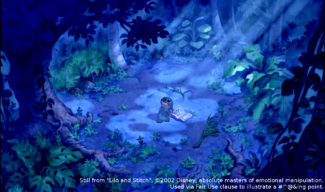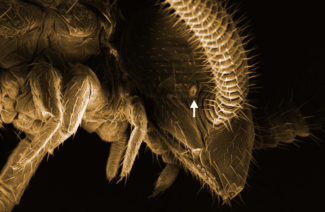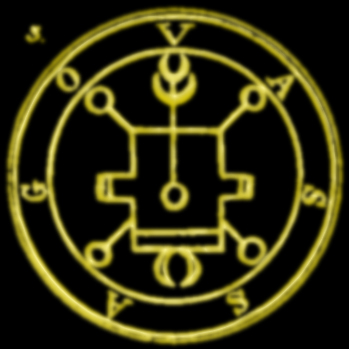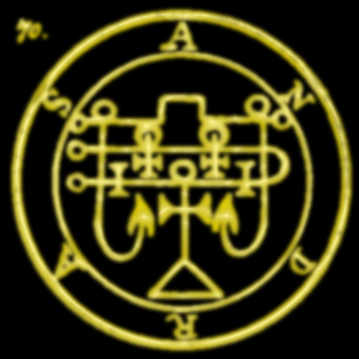
“I’m lost.”
Okay, let’s break it down.
The most primal and basic unit of social organization is the parent-child bond. The parenting instinct. Then there is the slightly more secondary need for a child to support the parent as the individual approaches maturity so that the parent can produce more siblings. Then a parent-like caring for younger brothers and sisters so that they can live to maturity. Then a caring for nieces and nephews, and grandchildren, and so on.
Organisms that experiences these urges for family care have a much better chance to have their genes passed along, outside of extraordinary personal genetic fitness, than those who do not. These are the urges that balance personal survival against the survival of the group. The ones that encourage personal sacrifice and loyalty in exchange for past sacrifices made on your behalf as a child, and the promise of loyalty to you in the future. Some minimal amount of mutuality, based on who needs it more. A sharing of burdens and resources.
The tribe is the next larger unit. Your know your tribal breeding population is made up of family members, some close, some more distant. Political strife begins to occur as families compete for dominance within the tribe, for better access to food and shelter, for elevated breeding privileges. But when there is a threat to your tribe from the outside, you fight for your tribe.
And next you have your community of tribes, more tolerated than loved, and kept around for exchanging maturing juveniles to prevent the horrors of prolonged inbreeding, each in subtle competition with the others, so that perceived elevation in tribal status draws the best candidates for sexual transfer from the other tribes.1
This is basic baboon stuff. We are primates after all. As the Chinese Crested Dog is to a wolf, we are the weak, body-naked, pouf-of-hair-on-top, tongue-lolling, shivering-in-a-sweater embarrassment to our remaining cousins in the Great Apes.
Every human organization — every cult, every religion, every club, every company, every gang, every military unit, every fraternity or sorority, every political party — every organization that survives does so by co-opting one or more levels of the familial-tribal-community bonds, by making us form physical neural associations with those built-in bonds through verbal language or body language or the more intimate language of pats and grips and hugs of mammalian oxytocin-releasing human contact, and demanding that these proffered strangers be treated as close family, with known roles and rules of interaction between members. Known roles, plus those two or three more insidious piggy-backed rules from the Creed or the membership booklet or employee handbook….
The point of vulnerability for being inducted, in every case, is a lost-and-alone state of alienation and the attendant feelings of exposure and endangered access to critical resources — when you are down and lonely and poor and sick and need help and comfort. And continued membership is enforced with threats of the ultimate social punishment for noncompliance and misbehavior — expulsion, the removal of the membership component of your individual identity, ostracism, and the potential future identification as an enemy of the group. A return to that agonizing lost and lonely and broke/broken state. And then possible attack on the other side of that.
And then there’s depression.2
A tendency to depression is anything but a survival trait for an individual, and I’m sure we all have a curiosity concerning how it gets passed down, but, see, it’s a survival trait for a family or tribe. It is a survival trait for a family to breed members who can be useful, but if the circumstances don’t allow them to be useful, they can lay down and die on demand. If your family, or tribe, or community, or an artificial surrogate for any of the above, declares you to be a worthless burden, it is a survival trait for them to be able to tell you to lay down and die and stop consuming resources the rest of the group needs — for you to die without fighting, risking injury to a more valuable member of the tribe.
For you to volunteer to feed the circling predators. For you to sacrifice yourself.
Which makes depression, like addiction, a social disease.3,4
Our own families can be a bit of a let-down sometimes. They are our first line of defense against crushing and frequently murderous social isolation, where we can make the mistake of letting disapproval cause debilitating distance. And that’s leaving out the fact that some family relationships can turn so toxic that we have to create that break ourselves. But frankly that’s just (occasionally lethal) primate familial wear and tear. A disease of a different order.
Where I’m going with this is that if someone who is not your flesh-and-blood relation calls you brother or sister, and they are merely co-members of an organization that you have joined, then your basic primate familial connectivity protocols have been infected by an organizational parasite that is using these bonds to create a super-organism that can use you and discard you like you use and discard cells.
Like with many parasites, it could be beneficial, or at least not actively malign. But, like with most parasites, that’s not the way to bet. Look for an emphasis on being a team player, on the extent to which personal risk and self-sacrifice is rewarded or even worshiped (coded in terms of glory and honor), and … look in the nearest gutter for your fallen “brothers” and “sisters”. Because an actual family (or a decent family-surrogate) takes care of its non-earners — children, the sick, the elderly, the retired, the crippled — and in a day where there are no wolves does not throw anyone to the wolves. In a day where there is enough food for everyone will not make someone lay down and cry themselves to death so that the healthier children and laborers can eat.
Well. Some actual families do do that. You should get well away from those, too.
I look at companies that kick out their longest-serving employees to prevent paying them the worth of their experience, that exile them before retirement and pensions become mandatory, and I see a vicious parasite. I look at cults that shun the members that question their authorities, and I see parasites. I see the US military branches and the suicide rates among their veterans, I know them to be parasites. (If they cared about how their soldiers end up, they should stop accepting new oaths of service until things are fixed.) I see the police and how they are turned into angry dogs and pitted against racial “undesirables”, and I know they have been infected. Infected and armed. I see gangs that turn the lonely into soldiers and use them up so that the big dogs at the top can rake in money, and I see the same kind of parasite that infects Wall Street to chew up MBAs. I see political parties with the exact same memetic markers.
And I see these organizations competing with one another for resources for themselves and expending humanity in the scuffles like we spend cash for dinner.
I see parasites the Centers for Disease Control and the World Health Organization should be studying with an eye toward isolation and eradication.
When you have become infected by one of these organizations, you give up the power to them, to use you, to discard you, and to crush you down until you feel like dying because of the way they can pretend to be your family.
Just, you know. Keep your eyes open, and try to find your real family before the fake ones convince you to lay down and die because you’re not useful to them.
[*]
____________________
1 Â Cf. The Selfish Gene, Richard Dawkins.
2 Â Seriously: https://suicidepreventionlifeline.org/ . Or on Twitter, @800273TALK . It’s okay if you need some help.
3 Â Before you hit up the infamous Rat Park stories on addiction and social isolation, be aware that there are plenty of actual relevant-to-human studies, with better controls and less serious flaws, that point to social isolation as being a huge factor in human struggles with addiction.
4 Â And before you go whizzing away on the idea that depression is all in your head, with no physical medical component, please remember that your brain is, for the sake of an oversimplified analogy, a computer made out of meat, and that “programming” is represented by physical reconfiguration of said meat, and that means medication works. You can’t cure everything with a hug.

Diego Alberto Salazar Moncada, Jaime Calle-Osorno, Freddy Ruiz-Lopez – Salazar-Moncada DA, Calle-Osorno J, Ruiz-Lopez F (2015) Morphological and molecular study of Symphyla from Colombia. ZooKeys 484: 121-130. doi:10.3897/zookeys.484.8363
“If you enjoy frightening others, you will be reborn as a centipede.”
Zabs-Dkar Tshogs-Drug-Ran-Grol. The Life of Shabkar: The Autobiography of a Tibetan Yogin. Albany: SUNY Press, 1994. p. 295.
I was just doing some light Sunday morning reading, William S. Burroughs and the Dead-End Horror of the Centipede God over in the BoingBoing archives, and it got me thinking. But to get you caught up with where I am in my head, it might take a bit of preliminary work.
Humans are kind of natural-born exceptionalists. We grant ourselves a special position at the top of the hierarchy of life on Earth based on our badassness as predators and raw destructive power … in the face of the evidence that 90% of us will scream like a little girl to find a centipede is sharing our chair with us, and in the face that any serious weather releases more energy than literally millions of our biggest bombs. We grant ourselves the position at the top of the pyramid even though we know that 97% of the inhabitable volume of the skin of our still mostly molten ball of rock is drowned in salt water at pressures that would crush us to jerky-nuggets before we have the luxury of drowning, supporting a huge wealth of life, mostly invertebrates by gross tonnage, that is not us. Meanwhile, on land, we only kind of thrive wedged between deserts and mountains and icy wastes, sandwiched between the sea and sky, outperformed by … grass. Trees. Roaches. Pigeons. Tardigrades. Bats, even. But we’re super-nifty because we got guns and iPhones.
We also have bacon, and cigarettes, and poverty — any one of which is more lethal than any conscious actions humans take to demonstrate their deadliness. As if that’s a valid measure of the value of a species regardless. If we try for a more positive measure, well, none of our largest contributions to Earth will last more than 250 years after the last human dies — and most of it will be gone inside of 50 years. Even the flags planted on the Moon will be bleached white into flags of surrender.
But, well, that’s just a tangent. A little context. We’re not all that, and centipedes are just cousins we kind of lost touch with not long after the Cambrian Explosion. But for all of our kinship, they seem monstrous. Alien. The only thing we respond with more revulsion to are other human beings — the sick, the deformed, the ones just different enough from us to trigger that “is it communicable?” reflex, that “uncanny valley” rejection of just like us, but … off. The reason we feel unease in the presence of too much inbreeding (cue “Dueling Banjos“). The reason there are no other remaining species of genus Homo.
Burroughs wrote in The Place of Dead Roads of people who were “being processed into centipedes. The centipede eyes are already in place. Eventually the centipede will emerge from the forehead, leaving the dead gray hulk behind.“… and that’s what made me think of the centipedes of the mind. That there is a way of thinking of a centipede in such a way that it manifests inside your skull, such that you can feel it climbing the walls of your skull with its needle-feet tickling the inner surface of your meninges, wriggling around aquatically in your cerebrospinal fluid….
And it can be transmissible.
And it can multiply, and divide us humans into opposing populations of infected and … yet to be infected, in which situation both populations see each other as inhabitants of that Uncanny Valley of the diseased. Because once you know about the centipede, even the absence of it leaves it defined in your mind in negative space in such detail that the exact shape of the centipede-hole behaves precisely as the centipede itself, and is also transmissible.
And then the presence or absence of the centipede itself becomes the defining characteristic of a new pair of subspecies of human, seeing as a principal defining characteristic of whether populations are different species is whether they interbreed or, for whatever reason, hold themselves separate from one another.
Once you have your centipede (or anticentipede) fully formed and pricking around in your little rubbery ventricles, the centipede eyes are already in place. Only they’re not really eyes. Well, let’s be accurate. They have eyes, but their eyes aren’t the best in the world. They also have Tömösváry organs, which, frankly, nobody is very clear on what they do, except we’ve known about them since the 1880s. But let’s be honest here as well. The centipede’s evolutionary path has not been idle since Great Uncle Pneumodesmus beat Grandmother Titaalik to shore by about 50 million years back in the Devonian days, and we may still have access to some of his stranger elder and eldritch apparati through their relationship.
But if nothing else, your new centipede senses let you detect the presence or absence of centipedes in the brains of others, do declare them once and for all, friend or foe.
[*]
Categories
Archives
- January 2018
- January 2016
- June 2015
- May 2014
- January 2014
- October 2013
- June 2013
- April 2013
- March 2013
- February 2013
- November 2012
- October 2012
- September 2012
- August 2012
- July 2012
- June 2012
- May 2012
- April 2012
- March 2012
- February 2012
- January 2012
- December 2011
- November 2011
- October 2011
- September 2011
- August 2011
- July 2011
- June 2011
- May 2011
- April 2011
- March 2011
- February 2011
- January 2011
- December 2010
- November 2010
- October 2010
- September 2010
- August 2010
- July 2010
- June 2010
- May 2010
- April 2010
- March 2010
- February 2010
- January 2010
- December 2009
- November 2009
- October 2009
- September 2009
- August 2009
- July 2009
- May 2009
- March 2009
- February 2009
- December 2008
- November 2008
- October 2008
- September 2008
- August 2008
- July 2008
- June 2008
- May 2008
- April 2008
- March 2008
- February 2008
- January 2008
- December 2007
- November 2007
- October 2007
- September 2007
- August 2007
- July 2007
- June 2007
- May 2007
- April 2007
- March 2007
- February 2007
- January 2007
- October 2006
- September 2006
- July 2006
- June 2006
- May 2006
- April 2006
- March 2006
This One Time
-
This One Time, 57
This one time I was watching a tiny plum-and-scarlet crab move into a sandcastle and I had this thought about entropy. Entropy is a confusing thing. It’s what people blame when things fall apart. And people are all emotional about how they think about it, because things falling apart is kind of tragic. People we […]
-
This One Time, 57
-
Recent Posts
Recent Comments
- Saia on The Little Gift Shop in the Vestibule of Hell
- Saia on The Little Gift Shop in the Vestibule of Hell
- Davelifestyle on Out in the Yard
- Davelifestyle on About
- xalieri on More Than Seven Things
Access
Station Identification

 Photoblog at Moblog.net
Photoblog at Moblog.net@xalieri
My Tweets





